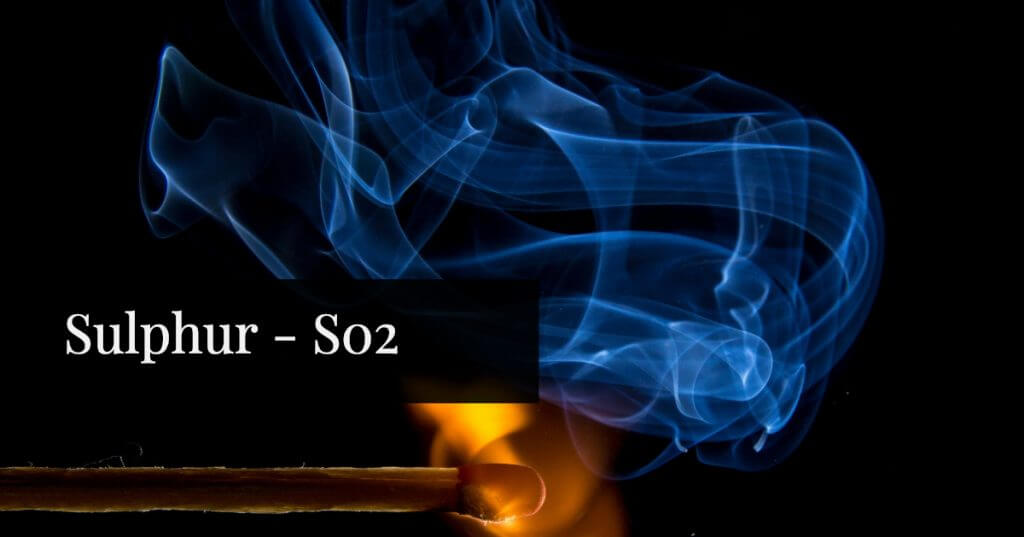Headaches, Low Sulphur, Sulphites
What Are Sulphites? Are Sulphites In Wine Dangerous?
What are sulphites?
Sulphites in wine are chemical compounds (sulphur dioxide, or SO2) that occur naturally, to a varying degree, in all types of wine.
Sulphites act as both a wine’s preservative and enhancer, many vintners purposely add sulphites at key moments of the winemaking process to quickly halt on-going fermentation or to help protect the wine against potential oxidation or bacterial exposure which could occur at various stages of the winemaking process.
- All wines contain sulphur dioxide at around 10 milligrams per litre. BUT commercially-made wines contain from ten to twenty times that amount.
Understanding sulphites in alcohol
What you need to know? Wine sulphites are highest in sweet wines, they have the biggest doses because sugar combines with and binds a high proportion of any SO2 that is added.
Sulphites in white wine and rose wines
White wines and Rosé wines don’t tend to contain natural anti-oxidants because they do not tend to be left in contact with their skins after crushing. For this reason, they are more prone to oxidation and tend to be given larger doses of sulphur dioxide.
Sulphites in red wine
Sulphites are lowest in dry red wines which do not usually need added sulphur dioxide because they naturally contain anti-oxidants, acquired from their skins and stems during the fermentation process.
Sulphites in orange wine
Similar to red wine which contain less sulphites than white wine, orange wine is made using skin contact methods which allow them to stay protected (and the reason they are called skin contact wines) and do not require additional sulphur dioxide to be added. This is why these natural wines are growing in popularity.
Browse our wine shop, find premium sulphite free orange wine on sale and easily buy wine online!
The biggest health risk is an allergic reaction
Are sulphites bad for you? While they are listed as a food allergen, a true allergic reaction in the form of anaphylaxis is, in fact, a very rare phenomenon. Some people get headaches only from red wine and some get them just from, say, a very cheap Chilean wine. It has to do with histamines and all sorts of other complex science. It really is best to start with increasing the quality of your wine, lowering the quantity – just enjoy the whole experience a little more, failing that have a chat to health professionals.
Do sulphites in wine cause headaches?
While they can cause asthmatic symptoms, they are not the known cause of headaches.
Watch out for the tannins though!!
Tannins are naturally occurring compounds that exist inside grape skins, seeds and stems. Also, make sure you drink your daily water intake, this helps a lot! People who suffer from migraines are often told to avoid sulphites as they may act as a trigger. If you think they may be the cause of your migraines, take note of what you ate and drank before your migraine started and talk to your doctor.
- Be advised that dried fruits are high in sulphite content, so putting a stop to these may be your first port of call, and try and avoid foods that say “may contain” or “may contain traces” of sulphites on the label.
What is sulphite sensitivity?
Sulphite sensitivity is when the body reacts to consuming sulphites and sensitive people may have a similar reaction to those with a food allergy. Sulphites can trigger asthma and symptoms of an anaphylactic reaction. Many people who have asthma may also have a sulphite sensitivity. An allergist can confirm sulphite sensitivity. In this case, sulphites need to be avoided.
How do I tell how much sulphur is in a bottle of wine?
Under strict EU law, vineyards must have the levels of sulphur dioxide present on the label. Organic and biodynamic organisations, such as Demeter, often impose their own restrictions on the wine that carries their labels.
A good natural wine, for example, will have levels less than half those imposed by the strictest organic organisations.
If you aren’t sure if a product contains sulphur dioxide, don’t take any chances. Carefully read the ingredient list of food products every time to avoid a sulphite-related reaction.
For those of you that think you might be sensitive to sulphites, may I suggest that you go for a chat with your GP, stick to sulphite free wines and take a look at trying some of our natural and organic wines.


